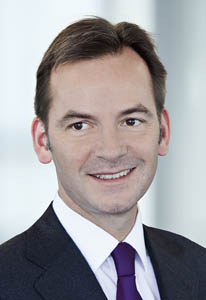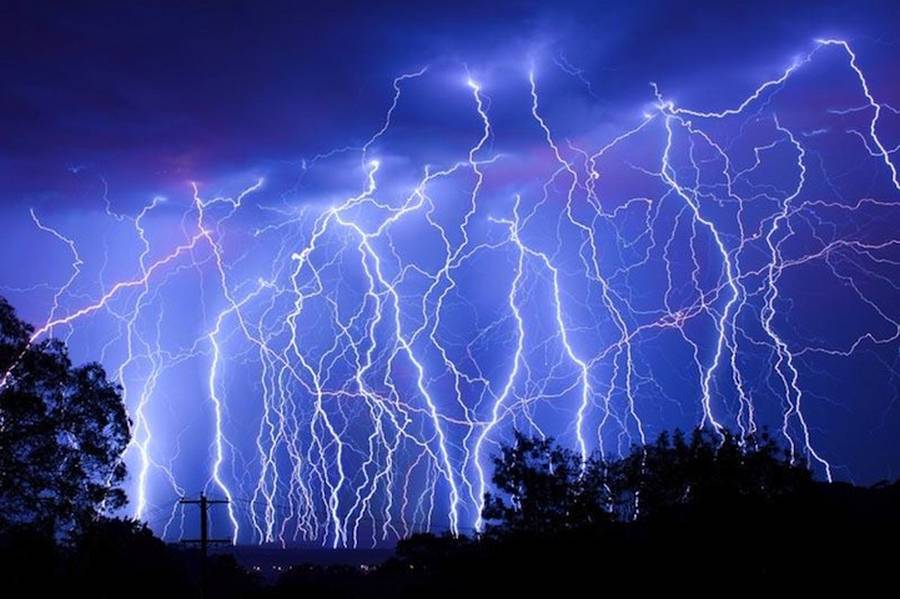Andreas Jacobs is a hugely successful businessman and industrialist as well as the owner of several top racehorse stud farms around the world. After visiting Maine Chance Farms he fell in love with the farm and bought it. As an act of faith in the venture, and in SA, he brought Silvano in as his first stallion. Despite difficulties with import-export controls, Andreas has never lost faith in this country and has thrown himself whole-heartedly into building Maine Chance into a top stud. With Princess Victoria running brilliantly and looking sure to do great things for him in the near future the names of Maine Chance Farms and Andreas Jacobs should be making the headlines again soon.
What is your name and age? Andreas Jacobs, 48.
What is your star sign and birthdate? Scorpio, 27.10.1963.
Where were you born? Bremen, Germany. A very old hanseatic city, known as one of the three largest harbours in Germany.
Tell us about your family? My mother comes from an old ship-owning family, with a very international background. My father was the third generation of the Jacobs Coffee family – a family that has been farmers for over 500 years in the Bremen area.
Where do you currently live? Hamburg, Germany, the other harbour city, close to Gestüt Fährhof.
Do you have a ‘nickname’’? Never had one, but in today’s e-mail world, they all shorten my name to AJ.
Favourite food? Spaghetti.
Favourite drink? French or South African red wine.
Favourite type of music? I studied music. Classical music. Cello and French Horn. I played 3-4 evenings per week in orchestras or in a string quartet or piano trio. My father was very strict with me and I had to finance my studies through my own income – so music became the spring of my life.
Favourite sport? Horse riding, tennis.
Favourite soccer team? Werder Bremen, from my home town.
Where is your favourite holiday destination? Southern Africa, including South Africa, Botswana, Namibia. In Europe: clearly France.
You are an independent entrepreneur with a doctorate in European competition law and a Master of Business Administration. Those enterprises are far removed from the world of horse racing, so what led you to getting so involved in the breeding and racing of horses? Horse breeding and racing is a passion. My whole family were passionate horse riders over generations. My father was even at the Olympics, although I think my mother was the better rider. When I was young, I started spending all my weekends at equestrian tournaments. I was pretty good at this. My first great horse was a thoroughbred called TRISTAN – the first horse that was raced in our family silks. I was able to ride him at the highest levels in Dressage. He was a star and changed my life. In 1995, my grandfather asked me to succeed him at Gestüt Fährhof. I was surprised but felt immensely honoured and privileged. So all my commitment and passion went into this stud. This is where the infection really started. Despite this passion we have clear rules in my family. The fundamental rule is that family comes first, business comes second, and private passions come last. In that sense, I am a relatively disciplined horse owner.
Your grandfather, Walther, founded the Gestüt Fährhof in 1960 and developed it into an internationally recognised and respected stud farm. You took over Fährhof on your grandfather’s passing while your father, Klaus, acquired Newsells Park Stud in England. With your father’s passing in 2008 you are now also chairman of that operation. With you also owning Maine Chance Farms, and residing in Germany, how do you manage to keep track of all that is happening on your farms? I am very privileged, because I have great teams running the farms. Without these teams, I wouldn’t have the farms. They are part of the fun. For example: there is nothing nicer than walking paddocks with John Slade and listening to his comments on each horse. This is better than any sandy beach, any movie, or any other experience which one can purchase. Trusting the teams, challenging the teams, applying my business mentality, and being allowed to dive into details from time to time, is a huge privilege. It helps my mind like many great breeders and owners in South Africa, we all have – and have to have – global jobs and businesses to fuel the passion for horses. Being everywhere, anytime, is something I do for my business. This is why it is no problem to be involved in three farms in three different places. To top it off I have a wonderful wife, who is the fountain of my drive, who understands my passion for horses, and – most importantly – who covers my back with respect to all my shortcomings in the family.
How did you acquire MAINE CHANCE FARMS? I was thinking about shuttling SILVANO. Robin Bruss, whom I contacted as a friend of The Hon Robert Acton – a good friend who managed all the farms of His Highness Sheikh Mohammed – showed me a few farms in the Western Cape. When Natalie and I saw Maine Chance, we fell in love at first sight. Two months later, I spent a weekend with Graham and Rhona Beck at Highlands. A weekend I will never forget. Since then, Mrs. Beck has my highest respect. She was most charming and intelligent. And Graham Beck became this unique individual that can hurt and love within one minute. Something like my father. I never wanted to be Mr. Beck’s son, but felt like his godson.
You have a really top man in John Slade running MAINE CHANCE FARMS. How long has he been working for you? John was at Maine Chance when I bought the farm. This is almost 10 years ago. He loves every single horse, he loves every animal, which makes him unique in this world.
How involved are you in the day-to-day running of the farm? Being so far away, it would be stupid to expect operational involvement. I have to rely on my team – which I do. I love the country, I love the farm, I love the team on the farm, and I love my horses – first and foremost SILVANO. He is the most important horse in my life today. I am trying to have the best team in the country. This is my challenge. And I know, if I will be betrayed or lose confidence in the team or country, I will exit.
How are matings for the MAINE CHANCE mares decided? John Slade knows all the mares and all the stallions. He puts all the details together. I can only challenge him when looking at the future of the mare or the financial balance between mare value and nomination price. Plus we now have about 50 international mares, where I can comment on the pedigrees and optimal nicks. But, in general, I love mating discussions. They put the truth on the table about the value of your mares, your stallions, and former matings.
How do you decide which European mares or colts come to stand in South Africa? I decide this based on the profile of the stallion. There are some basic principles: (1) the horse has to be genetically healthy / no US medication. (2) The horse has to be able to train on, i.e. able to win Gr1 races as an older horse. (3) The horse has to have some mystique in terms of pedigree or racing performance. (4) I have to like the individual for some emotional reasons. Today, I believe in all our stallions. This is why each of them will get more than 20 mares this year.
How much time do you manage to spend at MAINE CHANCE during the year? About four weeks a year.
When you took over the stud there were 80 broodmares on the farm, how many do you now have? 130 mares. Too many to allow quality over quantity. The reason to grow was very human: taking over the mares from Geoff and Katherine Winshaw of Litchfield Stud was not planned, but a must – based on how much we like and appreciate them! Also because of their love for VICTORY MOON, who was such a star at Maine Chance.
What do you think is the optimum number of mares to have in order to achieve as much success as possible? 80 mares would be ideal.
You started with Silvano as the resident stallion. What other stallions are currently standing at MAINE CHANCE FARMS ? Silvano is a superstar. As we all know, he only became a resident South African rather than a shuttle stallion based in Europe because the whole quarantine business did not work. It is still a mess and my biggest frustration in South Africa. Besides SILVANO, we have BLACK MINNALOUSHE, a beauty and champion racehorse and stallion. And we have two young boys: LATERAL, by the world champion Singspiel, a Champion Miler and three-year-old in Germany. And QUERARI, named after the Italian car manufacturer, who has a pedigree of dreams – for European standards. Needless to say, both were Gr 1 winners and champion horses.
You bred, and own, the brilliant filly PRINCESS VICTORIA. She runs in the colours of a number of owners including you. Can it be taken for granted that she will return to MAINE CHANCE at the end of her career ? In life, nothing can be taken for granted. My dream would be to see her delivering eight children, half of them from the best stallions outside South Africa, to establish the legacy around the world, and half of them in South Africa to strengthen our gene pool. She is an outstanding horse and I am proud and happy to be a partner in this horse with Georgina and Peter.
The dam of PRINCESS VICTORIA is Platinum Princess. Is she in foal at the moment and, if so, to which stallion? Platinum Princess foaled down a bay filly by Kahal on 12 November. She is to be covered by Captain Al in the 2011 season.
Will you be in Cape Town on the 3rd December to see her run in the Fillies Guineas? How is she currently doing ? According to Glen Kotzen, she is doing very well. I will not be able to see her in Cape Town, because we celebrate the 18th birthday of my oldest son in London. December 3 was also my father’s birthday, so I hope for a present!
She should start a very warm favourite for the race. Do you get nervous on race day knowing the public expect her to win ? Whenever we have a chance, I am nervous when we race on high level. This will be same on Dec 3.
How big a blow was it losing your stallion VICTORY MOON ? Losing stallions is the worst of all. Because making stallions is the most difficult of all. By the time you have set up all for a stallion you love them very much. Victory Moon was not easy to love, being a tough horse, not a beauty, and not really approachable. When my young horse-loving daughter went into paddocks to touch the stallions I had to make sure that she went to Silvano, not to Victory Moon. I always loved Victory Moon because of his toughness, his size and bone, and the history he has written by being the first South African horse that dominated Dubai.
Are any of your children as passionate about racing and, in particular, about breeding, as you are? My daughter is a great rider. I get goosebumps seeing her handling a horse. But besides this I hope they find their own way to become happy before possibly getting infected by the passion of breeding racehorses.
How would you compare the South African breeding industry to their counterparts in the rest of the world? This question leads to a book! When the foal hits the ground, everything is equal. Before and after, there are huge differences. Don’t forget, I invested in South Africa because I believe in what we do in this country – with respect to horses.
If prevailed upon to offer any advice to your fellow breeders in SA, what would you have to say? Go for great families. Go for sires that were genuine, internationally successful racehorses with limited medication.
What effect has the difficulty of exporting horses from South Africa had on your European operation? I am the worst person to ask about import and export. The inability to get the Silvano’s out of the country for shuttle purposes was just the beginning. We know import/export is priority number one to stimulate the horse industry in South Africa. Nobody on this planet is waiting for our horses. If we don’t establish trust, a belief in, a love for our horses, we will not succeed. We have to be much more dedicated and serious. Delegating it to some paid institutional representatives will not help. I appreciate Mike de Kock for pushing boundaries. We need three Mike’s to get where we should be!
Tell us a bit about the best horses that have raced in your colours? Tristan – born on 17.3.1963 – the best 2 year old in Germany in 1965 – I won about 15 dressage tournaments with him when I was 11 to 15. Lomitas, winning his Group 1 races by eight lengths on average. Breath-taking. Silvano, because of his amazing turn-of-foot. Look at the Arlington Million 2001. Like Danedream, this year’s Arc winner, they are both by Lomitas.
What and where were the biggest races you have won? Lavirco – Deutsches Derby – he was one the top three 3-year olds in 1996. We were first and second in the Derby. Silvano, winning the QE II Cup in Hong Kong and the Arlington Million. Quijano, winning 11 races in a row, including the Gr1 Preis von Baden – my home race track.









